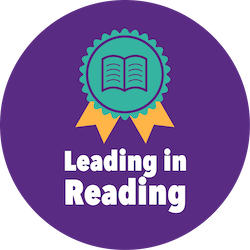You will already have seen a selection of safeguarding information within our policies information page. Here are additional links to support us all in keeping children safe. Just click on the blue headings for further information.
Shropshire Safeguarding Community Partnership
The Shropshire Safeguarding Community Partnership website – designed to provide useful information and advice for professionals, parents and children. SSCP coordinate and monitor how the services and professional staff work together to protect children from abuse or neglect. It is very important that the right decisions are made to ensure that family life is supported whenever possible but that, where a child is at risk of significant harm, there is a coordinated and effective response to the situation. Agencies involved in protecting children can include the police, education, health, probation, the voluntary sector and other organisations who work with children, as well as Children’s Social Care who have the lead responsibility.
Compass is the single point of contact for receiving new enquiries regarding concerns for the welfare or protection of children and young people in Shropshire.
Compass promotes the offer of early help to children and families in the first instance, where it’s safe to do so.
Compass provides other professionals with support and guidance in completing assessments for early help and delivering early help plans. This support includes the opportunity to book a consultation with either an early help social worker or a targeted youth worker.
The internet has changed all of our lives, particularly our children’s. For parents and carers this opens up a whole new world of things to be aware of. For many of us, this can all be a bit too much.
You might be struggling to keep up with the things your child is doing online, you might wonder whether what they are doing is safe, and you might also be thinking how can I be as good a parent online as I am offline?
This site aims to make online parenting simple.
The Child Exploitation and Online Protection (CEOP) website is run by the National Crime Agency. It has links to various websites and information available for all ages of children.
Childline is yours – a free, private and confidential service where you can be you. Whatever your worry, whenever you need help, however you want to get in touch. We’re here for you online, on the phone, anytime
Child abuse can take many forms. It can be emotional, physical, sexual or a lack of love and attention through neglect. And it can happen to any child, in any family, in any place or online.
Abuse often happens over a period of time, rather than as a one-off event, and can have a devastating effect on a child’s development and society as a whole.
But it doesn’t have to be this way. We can all play our part in preventing abuse. And we can all help a child who’s experienced abuse to get their life back on track.
Child exploitation
How to recognise if your child may be being exploited, and what you can do to help reduce the risks.
Shropshire Child Exploitation – Leaflet for Parents & Carers
What is the Prevent strategy?
Prevent is a government strategy designed to stop people becoming terrorists or supporting terrorist or extremist causes. The Prevent strategy covers all types of terrorism and extremism, including the extreme right wing, violent Islamist groups and other causes.
How does the Prevent strategy apply to schools?
From July 2015 all schools (as well as other organisations) have a duty to safeguard children from radicalisation and extremism. This means we have a responsibility to protect children from extremist and violent views the same way we protect them from drugs or gang violence. Importantly, we can provide a safe place for pupils to discuss these issues so they better understand how to protect themselves.
What does this mean in practice?
Many of the things we already do in school to help children become positive, happy members of society also contribute to the Prevent strategy.
These include:
· Exploring other cultures and religions and promoting diversity
· Challenging prejudices and racist comments
· Developing critical thinking skills and a strong, positive self-identity
· Promoting the spiritual, moral, social and cultural development of pupils, as well as British values such as democracy
We will also protect children from the risk of radicalisation, for example, by using filters on the internet to make sure they can’t access extremist and terrorist material, or by vetting visitors who come into school to work with pupils.
Different schools will carry out the Prevent duty in different ways, depending on the age of the children and the needs of the community.
Frequently Asked Questions
How does Prevent relate to British values?
Schools have been required to promote British values since 2014, and this will continue to be part of our response to the Prevent strategy.
British values include:
· Democracy
· The rule of law
· Individual liberty and mutual respect
· Tolerance of different faiths and beliefs
Isn’t my child too young to learn about extremism?
The Prevent strategy is not just about discussing extremism itself, which may not be appropriate for younger children. It is also about teaching children values such as tolerance and mutual respect. The school will make sure any discussions are suitable for the age and maturity of the children involved.
Is extremism really a risk in our area?
Extremism can take many forms, including political, religious and misogynistic extremism. Some of these may be a bigger threat in our area than others. We will give children the skills to protect them from any extremist views they may encounter, now or later in their lives.
Where to go for more information
Contact the school
If you have any questions or concerns about the Prevent strategy and what it means for your child, please do not hesitate to contact the school.
KEY TERMS
Extremism – vocal or active opposition to fundamental British values such as democracy, the rule of law and tolerance of different faiths and beliefs
Ideology – a set of beliefs
Terrorism – a violent action against people or property, designed to create fear and advance a political, religious or ideological cause
Radicalisation – the process by which a person comes to support extremism and terrorism
See our policies
You will find more details in our Child Protection Policy on our website.
We also have information about spiritual, moral, social and cultural development under curriculum, PSHE and British values.
What is PREVENT? Let’s talk about it
PREVENT leaflet 1 for parents and carers
PREVENT leaflet 2 for parents and carers
E-Safety for Parents
The internet is a great place for children to be and we take E-Safety very seriously, but we know how difficult it can be to keep track of all the latest sites and apps that children are interested in. Below, we will try to help you with information to stay up to date so that we can all work together to keep our children safe.
January 2020 – Information for parents on TikTok
February 28th 2019 – Some of the children in school have been talking about ‘Momo’ recently and there has been a lot of information in the media this week. More information about what this is and how to keep your children safe can be found below:
MOMO Online Safety Guide for Parents February 2019
Department For Education Advice For Parents On Cyberbullying
Fortnite Factsheet – Parent Information






